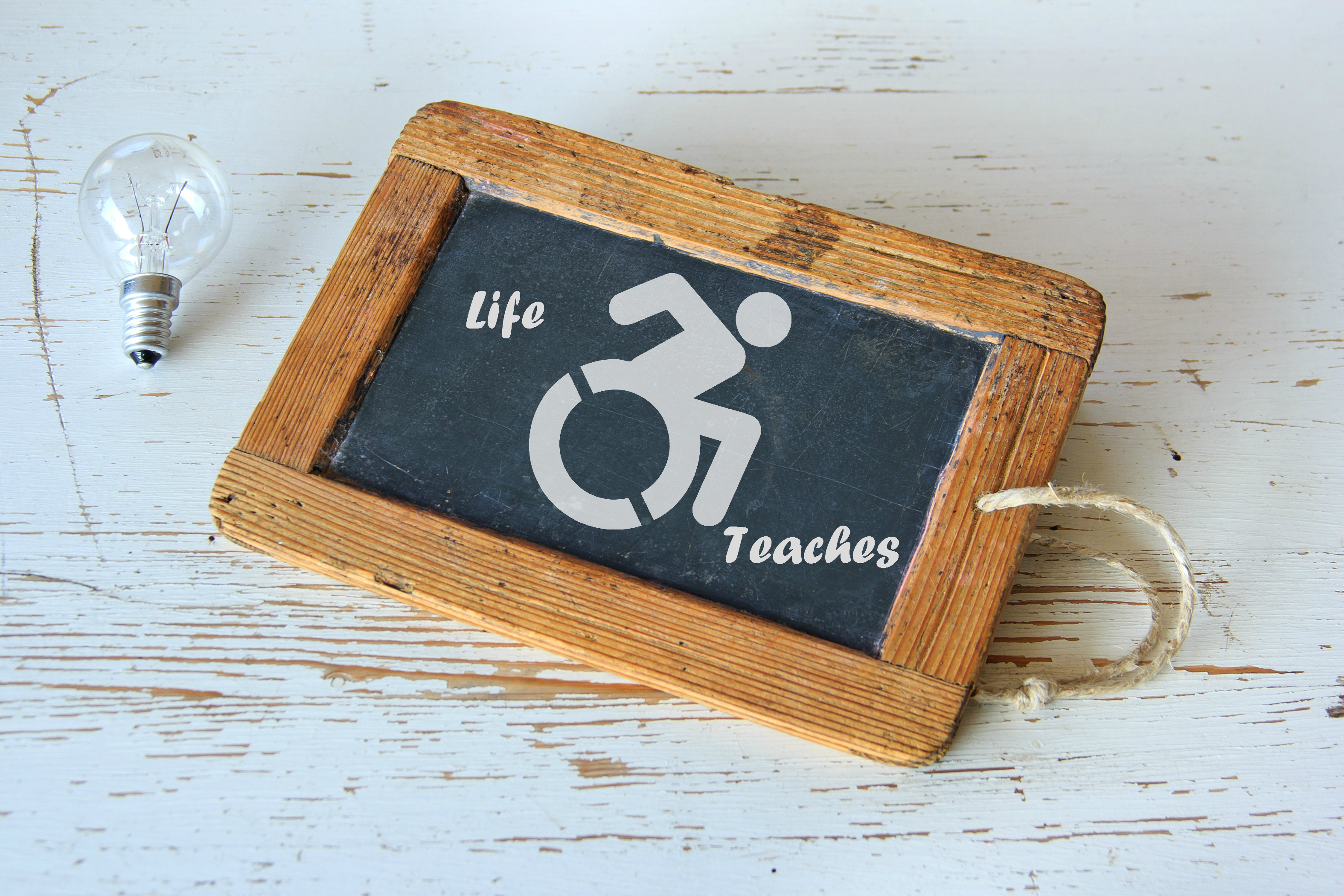When the relationship between Steve and myself started to get serious, one of my biggest concerns was how it would affect my children, who were 9 and 14 at the time. I think that is the case with most parents when “someone new” comes into the picture. For me, that was increased substantially because of the wheelchair.
What would they think? How would they handle this? What would it mean for their lives and our living situation?
It has meant a lot of changes and most importantly, a lot of learning. Here are four examples of the principles that we have learned while integrating a man with a disability into our lives:
1. Adapting to change is essential to life.
Anytime there is any kind of blending of families, there’s going to be change. For our family, learning to adjust to life with a wheelchair added to this a lot. We had to get used to aides coming and going multiple times each day. We needed to acclimate to a handicap-accessible house, which can look a lot different than one that hasn’t been adapted, depending on the extent of modifications. Then there was riding in a van set up to be driven with hand controls and missing the driver’s seat and middle row of passenger seating so that Steve can drive the car and maneuver his wheelchair. And lastly, there was navigating life outside of the house: going to restaurants, attending various social gatherings, traveling…all of that requires preparation, patience, and a fair amount of flexibility.
2. Our life is not guaranteed and neither is our health.
It’s not a question of if change will happen; it’s a question of when it will. Learning
to cope with change when we are young allows us to do so in a more nurturing, supportive environment where resisting it doesn’t have such dire consequences.
It was eye-opening and a bit surprising for Josh and Rachael to learn that Steve played 4 sports in high school. Sometimes you see someone in a chair and you just automatically assume that they were always disabled. LIfe is very unpredictable. Young people especially tend to think that they are invincible, but no one is. Seeing pictures and hearing stories of a life once lived before paralysis truly puts the uncertainty of life into perspective.
3. Different is not always bad.
Something happens to us after we reach a certain age; we become much more aware of differences and the way that those are often “received” by our society. Culture teaches us that the best way to be accepted is to blend in with everyone else and a 450 lb wheelchair doesn’t exactly blend in with anything. Whenever we enter a social setting, all eyes seem to go to the chair. Some look at us with pity, some with inquisitiveness, and honestly, some with disgust (probably thinking how much they would hate living that way. Honestly, there have been times that I want to look at them and say: “Take a picture, it will last longer.”
The flip side of this though is that Steve is rarely forgotten. He has a larger sphere of influence than what he may have otherwise. That in itself comes with blessings and responsibilities.
We are all different; God crafted each one of us as one of a kind. How can you use your unique situation to bless someone else? Are you living your life in a manner that celebrates differences instead of shaming them?
4. Patience really is a virtue.
As independent as Steve is, there are still many things that he is unable to do. What he can do, and what is done to help him, often takes time. I am not a patient person, so this has been something that has and still is pushing me outside of my comfort zone. All of us have areas in our lives though where we need people to extend that patience to us, and so it becomes just as much of a lesson in empathy, as it is patience.
If you enjoy reading our posts, then please sign share this with your friends on social media. You can also share your story with us, we like to know what our readers are going through and what we can do to serve you better.

